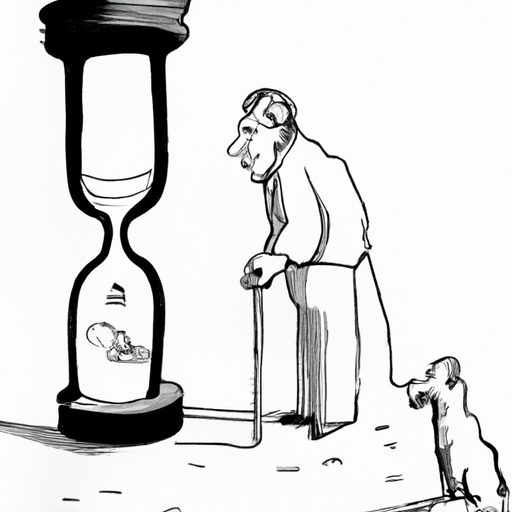Understanding the Lifespan of Dogs
Life, as it is, unfolds in fascinating ways. You, as a caregiver, might have wondered why your loyal canine companion has a shorter lifespan compared to yours. It’s a question that tugs at the heartstrings of every pet parent and is worth delving into.
The lifespan of dogs is influenced by a variety of factors including size, breed, and genetics. Unlike humans, dogs mature faster and age quicker. This is due to what scientists call ‘heterogeneous rates of aging’. This term simply means that different species age at different rates.
The Role of Size and Breed
One of the most intriguing aspects of a dog’s lifespan is the role of size and breed. Contrary to the rule in the animal kingdom where larger animals live longer, in dogs, the smaller breeds tend to have longer lifespans than their larger counterparts.
| Breed | Average Lifespan |
|---|---|
| Chihuahua | 14-16 years |
| Great Dane | 7-10 years |
Genetics and Health Conditions
Just like in humans, genetics play a crucial role in a dog’s lifespan. Certain breeds are predisposed to specific health conditions that may shorten their lifespan.
- Bulldogs: Prone to respiratory issues
- Golden Retrievers: At risk of cancer
- Dachshunds: Susceptible to spinal problems
Quality of Care
Your role as a caregiver is invaluable in determining the quality and length of your dog’s life. Proper nutrition, regular exercise, and routine vet check-ups are essential. Remember, a happy dog is a healthy dog!
The Bright Side
Though it’s a hard pill to swallow, the shorter lifespan of dogs teaches us important life lessons. They teach us about loyalty, unconditional love, and living in the moment. Their shorter lives, though heartbreaking, can be full, meaningful, and incredibly impactful.
FAQ
Q: Why do smaller dogs live longer than larger ones?
A: The exact reason is unknown. However, it’s believed that larger dogs grow from puppies to adults at a faster rate which could lead to a shorter lifespan.
Q: Can a dog’s lifespan be extended?
A: While we can’t alter a dog’s genetic lifespan, quality care and regular vet check-ups can help prolong their life.
Q: How old can the oldest dogs get?
A: The oldest recorded age for a dog is 29 years. However, this is rare and most dogs live between 10-15 years.
Q: Is there a way to predict my dog’s lifespan?
A: While there’s no sure way to predict, a combination of breed, size, genetics, and quality of care can give a rough estimate.
Remember, every moment with your furry friend is precious. So, cherish it and make it count!



